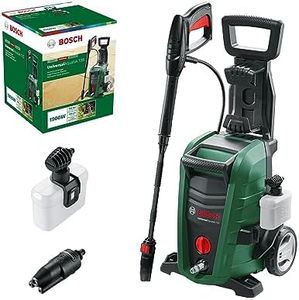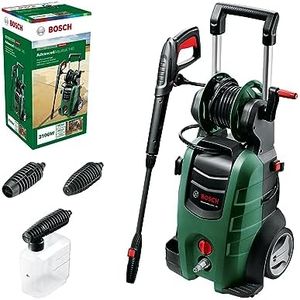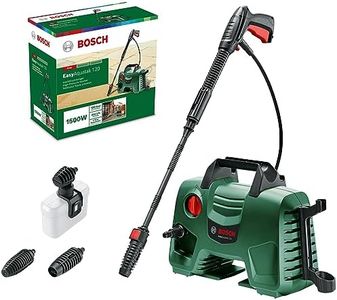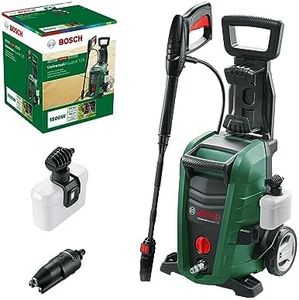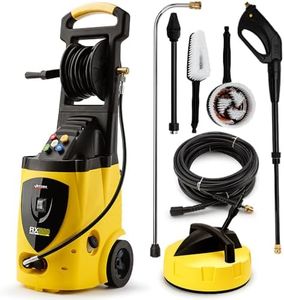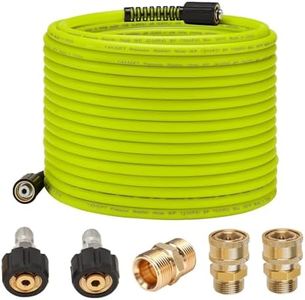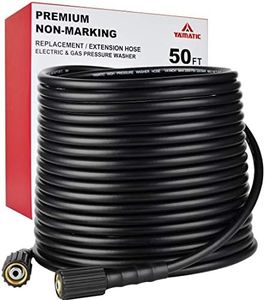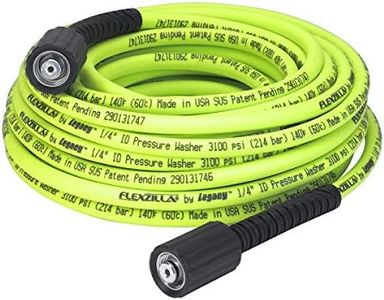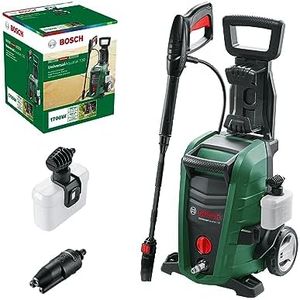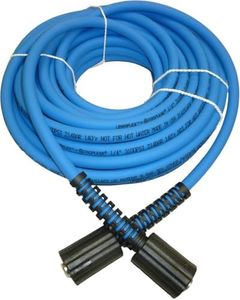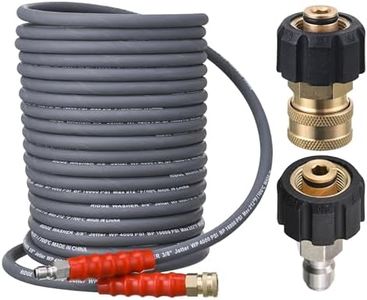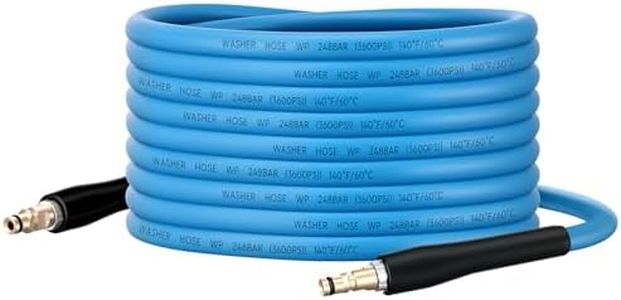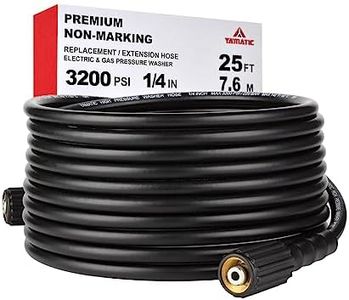We Use CookiesWe use cookies to enhance the security, performance,
functionality and for analytical and promotional activities. By continuing to browse this site you
are agreeing to our privacy policy
10 Best Pressure Washing Hose
From leading brands and best sellers available on the web.Buying Guide for the Best Pressure Washing Hose
Choosing the right pressure washing hose can make your cleaning tasks much easier and more efficient. The right hose ensures that you get the proper water flow and pressure for your desired cleaning job, whether you're washing your car, patio, or siding. When picking a pressure washing hose, you should think about where and how often you'll use it, the types of surfaces you'll clean, and what kind of pressure your pressure washer provides. A good hose should match your machine and your tasks, making your work smooth and safe.LengthLength refers to how long the hose is from end to end. This is important because a longer hose gives you more reach, so you can clean larger areas without moving the pressure washer around. Short hoses (around 20-25 feet) are best for small jobs or car washing, while medium hoses (30-50 feet) work well for patios and driveways. Long hoses (50+ feet) are great for bigger spaces like decks or homes. Choose a length that allows you to reach your usual cleaning areas without excessive slack, as longer hoses can also be heavier and harder to store.
DiameterDiameter is the thickness of the hose, usually measured in inches. This matters because it affects the water flow and the compatibility with your pressure washer. Common sizes are 1/4 inch, 5/16 inch, and 3/8 inch. Thinner hoses (1/4 inch) are lighter, easier to handle, and fine for lower pressure or light-duty tasks. 3/8 inch hoses are better for heavy-duty use as they allow more water flow and can handle higher pressure, but they can be heavier and less flexible. Check what size your machine supports, and choose based on your cleaning needs.
Pressure Rating (PSI)PSI stands for pounds per square inch, and it shows how much water pressure your hose can safely handle. If your hose has a lower PSI than your machine, it could burst and be dangerous. Light to medium jobs usually need hoses with ratings up to 3200 PSI, while heavy-duty cleaning might require hoses rated up to 4000 PSI or more. To avoid problems, always check the pressure output of your washer and pick a hose with a PSI rating that's equal to or higher than your machine's output.
MaterialPressure washing hoses are made from materials like PVC, rubber, or polyurethane. The material affects flexibility, strength, and how long the hose lasts. PVC is budget-friendly and lightweight but can be stiff, especially in cold weather. Rubber hoses are more flexible and durable, making them great for frequent or heavy-duty use, though they can be heavier. Polyurethane hoses offer the best flexibility, lightness, and durability but are usually more expensive. Consider which qualities are most important for your tasks and comfort.
Connector TypeConnectors are the fittings at the ends of the hose that attach to your pressure washer and spray gun. They usually come in two types: threaded (screw-on) and quick-connect. It's important to choose connectors that match your pressure washer equipment, so they fit tightly and don't leak. Quick-connect fittings make it faster and easier to swap out hoses or accessories, while threaded fittings can be sturdier for heavy-duty use. Check your machine's requirements before choosing.
Flexibility and Kink ResistanceFlexibility describes how easily you can move and bend the hose during use. Kink resistance means how well a hose avoids tangling or flattening, which can cut water flow and frustrate you. More flexible hoses are easier to move around corners, trees, or furniture but should still resist kinking. If you'll be dragging the hose or working around lots of obstacles, look for a hose labeled as highly flexible or kink-resistant. This helps prevent interruptions and makes cleanup faster.
